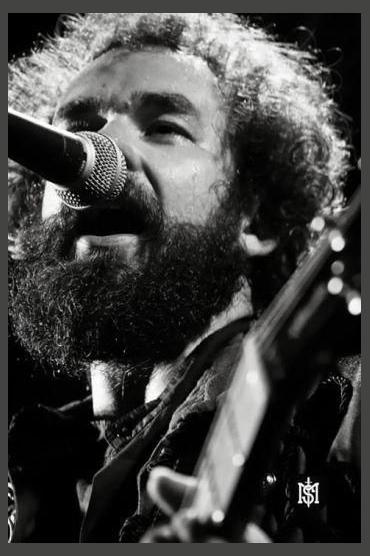 Mato Seco
Mato Seco
Mato Seco: A Journey Through Brilliance and Adversity
Origins and Early Struggles
Mato Seco emerged from the vibrant streets of Salvador, Brazil, in the early 1970s. The band's founders, Paulinho Boca de Cantor, Baixinho, and Luiz Caldas, were driven by a shared passion for blending traditional Bahian rhythms with the burgeoning sounds of rock and soul.
However, their path was strewn with challenges. The band faced resistance from the conservative music establishment, which dismissed their fusion of styles as disrespectful to both traditional and contemporary music. Financial difficulties also plagued Mato Seco, often forcing them to perform in bars and clubs for meager pay.
Breakthrough and Brilliance
Despite adversity, the band's determination and musical prowess eventually gained recognition. In 1975, they released their debut album, "Brilho Oculto." The title track, a mesmerizing blend of samba, rock, and Bahian folk, became an instant hit and catapulted Mato Seco to national fame.
The album was a critical and commercial success, earning the band a wide following and establishing them as one of the most influential Brazilian bands of the era. Their subsequent releases, including "Mato Seco" (1977) and "Mato Seco III" (1979), further cemented their status as musical innovators.
Controversies and Personal Trials
Mato Seco's success was not without its share of controversies. The band's outspoken lyrics, often addressing social and political issues, drew the ire of censors during Brazil's military dictatorship. Additionally, personal conflicts and substance abuse took a toll on the band's members.
In 1981, Baixinho left the group due to creative differences. The remaining members struggled to maintain the band's momentum, and Mato Seco eventually disbanded in 1984.
Reunion and Legacy
Despite their premature dissolution, Mato Seco's legacy continued to inspire generations of Brazilian musicians. In 2009, the band reunited for a series of sold-out concerts, rekindling the flame of their brilliance.
The band's influence is undeniable, having paved the way for countless artists to fuse traditional and modern styles. Their music remains a testament to their resilience, creativity, and the transformative power of music.
Members
* Paulinho Boca de Cantor (vocals, guitar)
* Baixinho (bass, vocals)
* Luiz Caldas (drums, percussion)
* Glauber (keyboard)
* Robertinho (guitar)
Discography
* Brilho Oculto (1975)
* Mato Seco (1977)
* Mato Seco III (1979)
* Vozes (1980)
* Sarau (1981)
* Mato Seco ao Vivo (1984)
* Brilho Oculto (Remastered) (2009)
Origins and Early Struggles
Mato Seco emerged from the vibrant streets of Salvador, Brazil, in the early 1970s. The band's founders, Paulinho Boca de Cantor, Baixinho, and Luiz Caldas, were driven by a shared passion for blending traditional Bahian rhythms with the burgeoning sounds of rock and soul.
However, their path was strewn with challenges. The band faced resistance from the conservative music establishment, which dismissed their fusion of styles as disrespectful to both traditional and contemporary music. Financial difficulties also plagued Mato Seco, often forcing them to perform in bars and clubs for meager pay.
Breakthrough and Brilliance
Despite adversity, the band's determination and musical prowess eventually gained recognition. In 1975, they released their debut album, "Brilho Oculto." The title track, a mesmerizing blend of samba, rock, and Bahian folk, became an instant hit and catapulted Mato Seco to national fame.
The album was a critical and commercial success, earning the band a wide following and establishing them as one of the most influential Brazilian bands of the era. Their subsequent releases, including "Mato Seco" (1977) and "Mato Seco III" (1979), further cemented their status as musical innovators.
Controversies and Personal Trials
Mato Seco's success was not without its share of controversies. The band's outspoken lyrics, often addressing social and political issues, drew the ire of censors during Brazil's military dictatorship. Additionally, personal conflicts and substance abuse took a toll on the band's members.
In 1981, Baixinho left the group due to creative differences. The remaining members struggled to maintain the band's momentum, and Mato Seco eventually disbanded in 1984.
Reunion and Legacy
Despite their premature dissolution, Mato Seco's legacy continued to inspire generations of Brazilian musicians. In 2009, the band reunited for a series of sold-out concerts, rekindling the flame of their brilliance.
The band's influence is undeniable, having paved the way for countless artists to fuse traditional and modern styles. Their music remains a testament to their resilience, creativity, and the transformative power of music.
Members
* Paulinho Boca de Cantor (vocals, guitar)
* Baixinho (bass, vocals)
* Luiz Caldas (drums, percussion)
* Glauber (keyboard)
* Robertinho (guitar)
Discography
* Brilho Oculto (1975)
* Mato Seco (1977)
* Mato Seco III (1979)
* Vozes (1980)
* Sarau (1981)
* Mato Seco ao Vivo (1984)
* Brilho Oculto (Remastered) (2009)